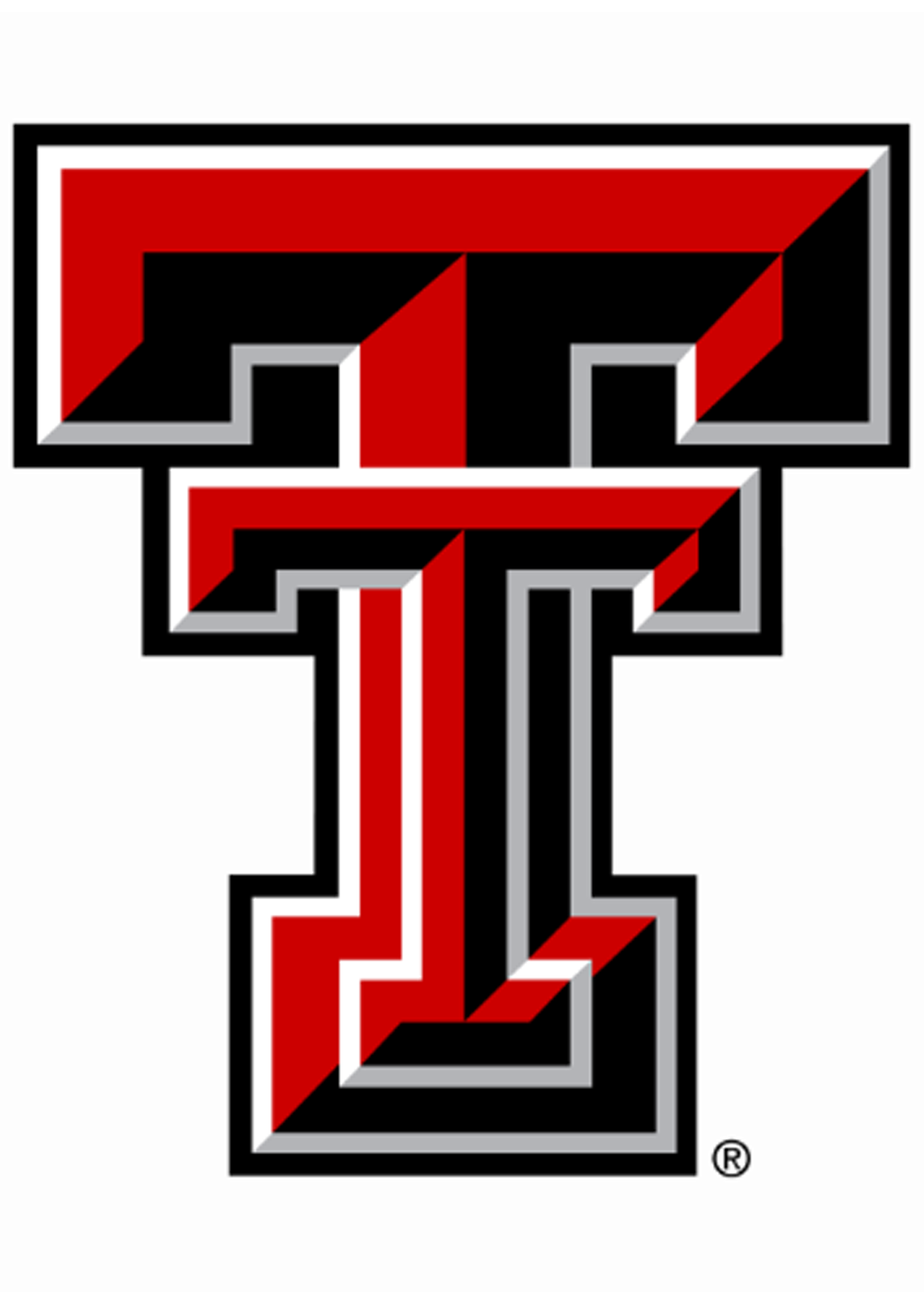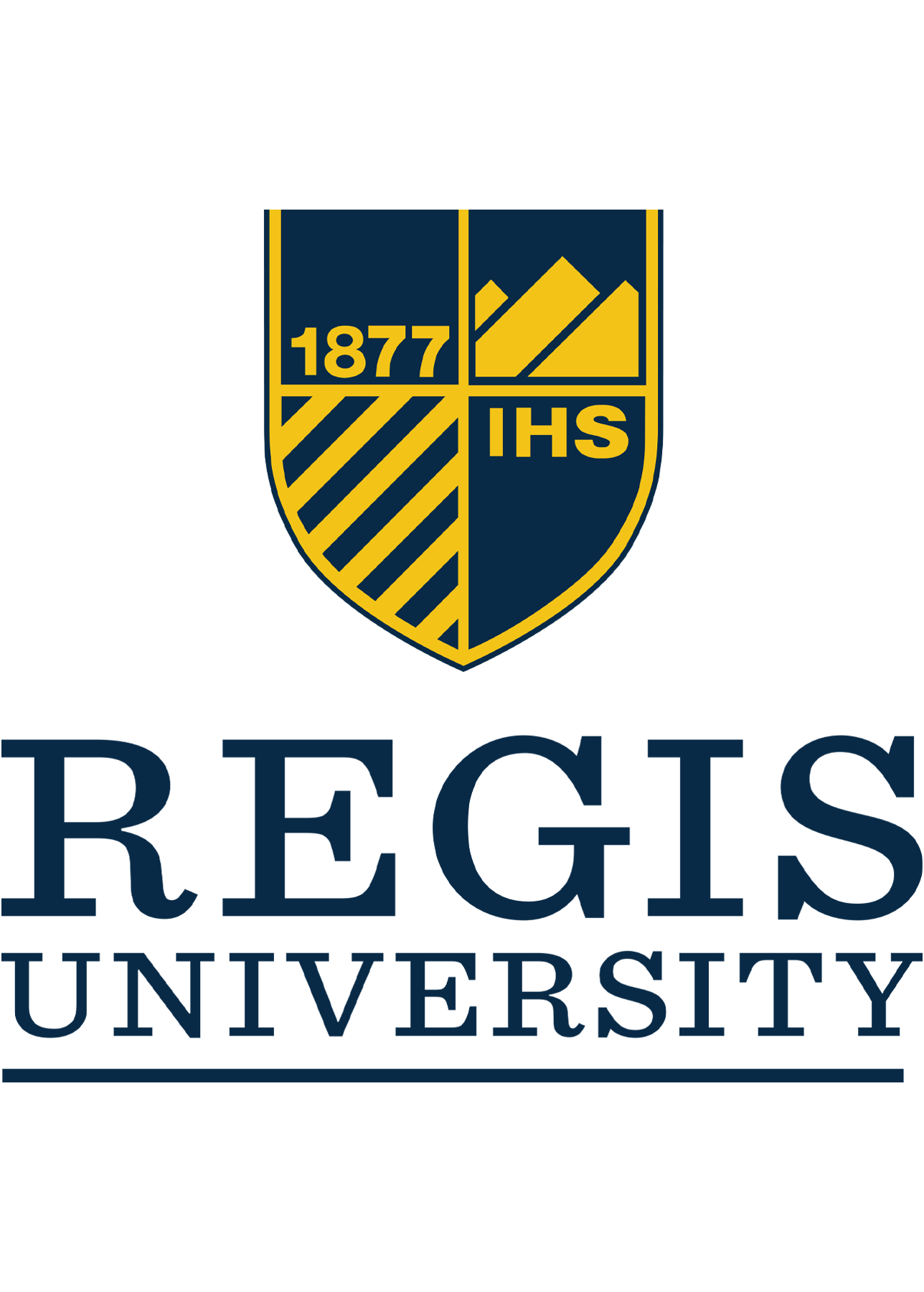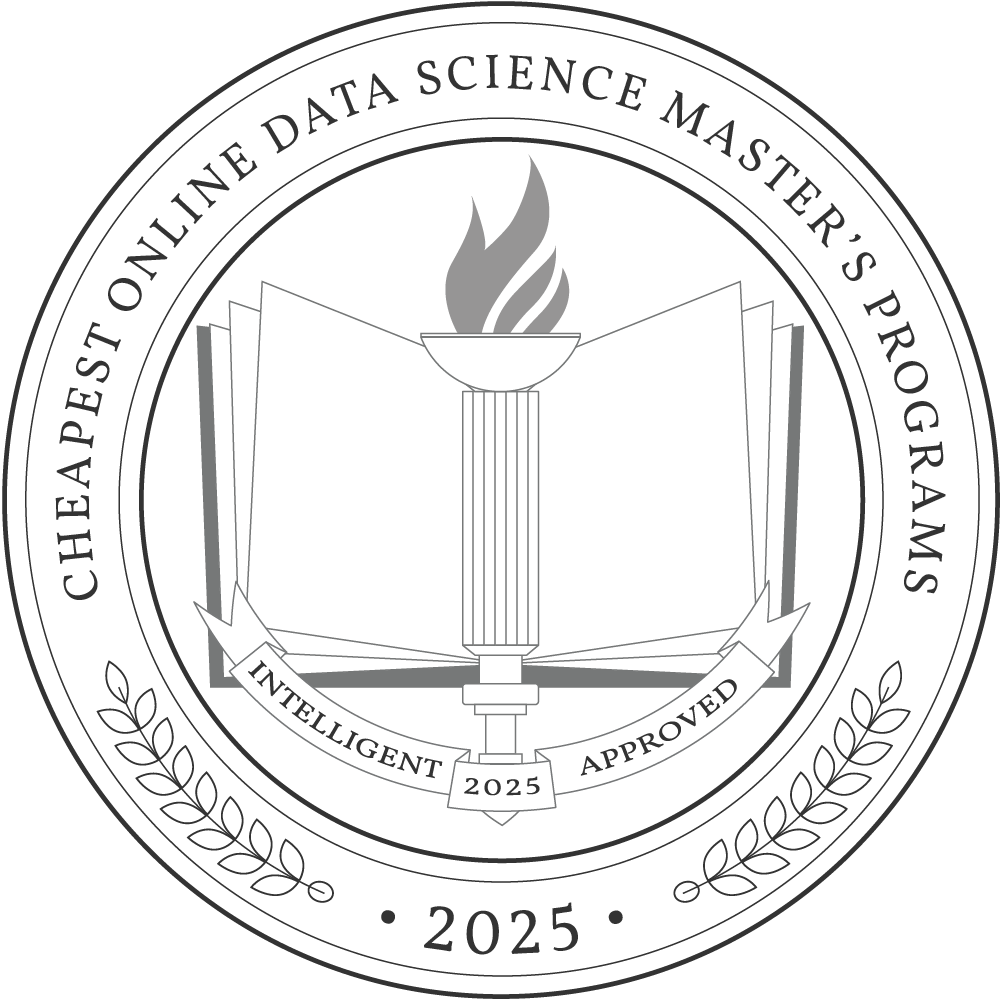Earning a master’s degree in data science will enable you to access higher-level positions and take on leadership roles. This highly desirable field is one of the fastest-growing professions in the U.S., offering fulfilling work options and the possibility of six-figure salaries.
Costs for a master’s degree vary greatly depending on the type and location of your chosen school. In this article, we’ll look at some of the cheapest online data science master’s programs and professional opportunities you can undertake with this degree.
Cost Breakdown for an Online Master’s in Data Science Program
It’s helpful to understand all the costs associated with pursuing this degree when choosing the cheapest online master’s program.
- Tuition: This is the primary expense students must account for when earning an online master’s in data science. Schools charge students tuition for access to courses and basic educational services. Generally speaking, full-time students pay a flat per-term tuition fee based on a full-time credit load (9-12 credits for graduate students). Meanwhile, part-time students pay based on individual credit hours. Some colleges have different tuition rates for online and on-campus students, while others charge all students the same tuition rate, regardless of how they attend.
- Fees: Most schools charge online students additional fees to cover services like virtual classroom technology, online library access, and tech support. Fees may be charged on a one-time, per-term, or annual basis.
- Personal technology: Reliable technology is essential for success in an online program. Before starting classes, students should assess their current hardware, software, and internet access and determine if they need to upgrade. If so, check with your college to see if they partner with retailers or brands to provide student discounts on tech supplies.
- Books and supplies: Even in online programs, instructors may still require hard copy or digital textbooks and other learning materials. The Education Data Initiative reports that the average post-secondary student spent between $628 and $1200 on books during the 2021-2022 academic year, making this a significant cost that students must budget for.
While earning an online degree involves multiple expenses, there are also some cost-saving advantages. For example, students don’t have to pay for transportation costs to and from campus, such as gas, parking, and public transit fees. They also have the flexibility to live in a more affordable location rather than pay for room and board on campus.
Factors Influencing the Cost of an Online Master’s in Data Science Program
No two online master’s in data science degree programs cost the same and are based on a few key factors.
Public vs. private institution
Public colleges typically have two tuition rates: one for students who reside in the state where the school is located and one for students who are from out-of-state, because public schools use state tax dollars to fund their operations. Since their tax dollars have already contributed to the institution, resident students get a discounted tuition rate, while out-of-state students must pay the full tuition rate. However, some schools charge online students the in-state tuition rate, regardless of where they live. Meanwhile, private colleges have one tuition rate for all students, regardless of residency, as they don’t receive tax dollars. Because private colleges rely more heavily on tuition as a source of revenue, they tend to have higher tuition rates than public colleges.
Non-profit vs. for-profit
Another college distinction is whether it is non-profit or for-profit. All public and most private universities are non-profit. These colleges must reinvest all their revenue into the institution through faculty and staff salaries, infrastructure, student services, and more. For-profit schools operate like corporations, with the primary goal of earning a profit. While these types of schools may have lower tuition rates than non-profit colleges, they also typically invest less in faculty, infrastructure, and other student resources. Therefore, students at for-profit schools may receive a different quality of education than those at non-profits. Students considering for-profit schools should carefully review how the institution invests its money and its student outcomes.
Student military status
Many schools offer discounted tuition rates to students who are currently serving in the military or are veterans. Spouses and children of active-duty service members and veterans may also qualify for tuition discounts. Students who think they might be eligible should consult the school’s financial aid office for more information.
Number of credits and completion time
Simply put, the longer you’re enrolled in a degree program, the more you’ll pay. The total number of credits for online master’s in data science degree programs varies, typically 30-60 credits. Students should look at the program’s total credit requirements and per-credit tuition rate to determine the program’s overall cost.
Why Trust Us
The Intelligent.com Higher Education Team is dedicated to providing students with independent, equitable school and program rankings and well-researched resources. Our expert-driven articles cover topics related to online colleges and programs, paying for school, and career outlooks. We use data from the U.S. Department of Education’s College Scorecard, the National Center for Education Statistics, and other reputable educational and professional organizations. Our academic advisory team reviews content and verifies accuracy throughout the year for the most current information. Partnerships do not influence rankings or editorial decisions.
- Analyzed over 2,000 national, accredited, and nonprofit colleges and universities
- 800+ rankings pages are reviewed and updated yearly
- Content is informed by reputable sources, surveys, and interviews with academic advisors and other experts
- Over 100 data points are reviewed for accuracy and quality throughout the year, including sources
How we rank schools
Our list features the cheapest online Master’s in Data Science degree programs at top colleges nationwide. Each school featured is a nonprofit, accredited institution — either public or private — with a high standard of academic quality for post-secondary institutions.
We evaluated each school’s program on tuition costs, admission, retention and graduation rates, faculty, reputation, and the student resources provided for online students. We collected data from trusted sources like the National Center for Education Statistics, individual school and program websites, school admissions counselors, and other data sources. Then, we calculated the Intelligent Score on a scale of 0 to 100 based on the following criterion:
Academic Quality:
- Admission rate versus enrollment rate
- Retention rate of students who return after year one
- Accreditation status (regional and programmatic)
- Nonprofit status, both private and public institutions
Graduation Rate
- Overall graduation rate
- Total number of currently enrolled students, including diversity metrics
- Student-to-faculty ratio
Cost and ROI
- In-state and out-of-state per-credit tuition rates and fees
- Required credits to graduate
- Earning potential after graduation
- Availability of federal student loans, scholarships, and other financial aid options
Student Resources
- Available student services for online-only and hybrid programs
- On-campus amenities like tutoring centers and the number of libraries
Read more about our ranking methodology.
Cheapest 21 Online Data Science Master's Programs
FiltersInstitution Type
Status
- Intelligent Score
- Alphabetically By University Name
- Acceptance Rate
- Enrollment
- In-state Graduate Tuition
- Out-of-state Graduate Tuition
- In-state Undergraduate Tuition
- Out-of-state Undergraduate Tuition

Texas Tech University
Intelligent Score: 97.29In-state: $8,683
Out-of-state: $20,953
In-state: $6,788
Out-of-state: $6,788
SAT: 1070-1240
ACT: 22-27
$213
Online, On-Campus
Southern Association of Colleges and Schools Commission on Colleges
36

Maryville University
Intelligent Score: 94.50In-state: $24,766
Out-of-state: $24,766
In-state: $14,346
Out-of-state: $14,346
SAT: N/A
ACT: N/A
$825
Online
Higher Learning Commission
36

New College of Florida
Intelligent Score: 92.54In-state: $21,677
Out-of-state: $44,705
In-state: $29,944
Out-of-state: $29,944
SAT: 1110-1360
ACT: 24-31
Residents: $474 Non-Residents: $1,169
Online
Southern Association of Colleges and Schools Commission on Colleges
36

Utica University
Intelligent Score: 91.81In-state: $39,718
Out-of-state: $39,718
In-state: $47,915
Out-of-state: $47,915
SAT: 1084-1250
ACT: 23-32
$830
Online
Middle States Commission on Higher Education
30

CUNY Graduate Center
Intelligent Score: 91.75In-state: $6,930
Out-of-state: $14,880
In-state: $11,090
Out-of-state: $11,090
SAT: 1170-1340
ACT: 25-31
Residents: $470 Non-Residents: $855
Online
Middle States Commission on Higher Education
30

Regis University
Intelligent Score: 91.59In-state: $38,208
Out-of-state: $38,208
In-state: $14,322
Out-of-state: $14,322
SAT: 1000-1220
ACT: 21-28
$976
Online, On-Campus
Higher Learning Commission
36-54

University of Delaware
Intelligent Score: 90.68In-state: $12,730
Out-of-state: $34,160
In-state: $34,164
Out-of-state: $34,164
SAT: 1150-1330
ACT: 25-30
$1,028
Online
Middle States Commission on Higher Education
33

National University
Intelligent Score: 88.88In-state: $13,320
Out-of-state: $13,320
In-state: $15,480
Out-of-state: $15,480
SAT: N/A
ACT: N/A
$663
Online
Western Association of Schools and Colleges
42

Ramapo College of New Jersey
Intelligent Score: 88.81In-state: $12,414
Out-of-state: $22,157
In-state: $17,676
Out-of-state: $17,676
SAT: 1040-1220
ACT: 21-27
$1,334
Online, Hybrid
Middle States Commission on Higher Education
30

UMass Dartmouth
Intelligent Score: 86.4In-state: $15,791
Out-of-state: $35,779
In-state: $14,014
Out-of-state: $14,014
SAT: 1200-1390
ACT: 27-32
$422
Online
New England Commission of Higher Education
30

University of California, Berkeley
Intelligent Score: 86.13In-state: $11,442
Out-of-state: $41,196
In-state: $11,442
Out-of-state: $11,442
SAT: 1310-1530
ACT: 30-35
$950
Online
Western Association of Schools and Colleges
54

University of Wisconsin Oshkosh
Intelligent Score: 85.78In-state: $9,273
Out-of-state: $37,161
In-state: $10,728
Out-of-state: $10,728
SAT: 1260-1460
ACT: 27-32
Residents: $538 Non-Residents: $1,087
Online
Higher Learning Commission
36

Fordham University
Intelligent Score: 85.15In-state: $54,730
Out-of-state: $54,730
In-state: $23,112
Out-of-state: $23,112
SAT: 1230-1410
ACT: 27-32
$1,570
Online
Higher Learning Commission
30

Southern New Hampshire University
Intelligent Score: 84.61In-state: $9,600
Out-of-state: $9,600
In-state: $18,810
Out-of-state: $18,810
SAT: N/A
ACT: N/A
$637
Online
New England Commission of Higher Education
36

Georgia State University
Intelligent Score: 84.42In-state: $7,158
Out-of-state: $22,389
In-state: $7,164
Out-of-state: $7,164
SAT: 1030-1260
ACT: 20-26
Residents: $408 Non-Residents: $1,322
Online
Southern Association of Colleges and Schools Commission on Colleges
30-36

University of St. Thomas, Minnesota
Intelligent Score: 83.72In-state: $46,348
Out-of-state: $46,348
In-state: $24,589
Out-of-state: $24,589
SAT: 1130-1340
ACT: 23-29
$1,310
Online
Higher Learning Commission
30

Johns Hopkins University
Intelligent Score: 82.69In-state: $54,160
Out-of-state: $54,160
In-state: $57,010
Out-of-state: $57,010
SAT: 1470-1560
ACT: 34-36
$1,756
Online, Hybrid
Middle States Commission on Higher Education
30

DePaul University
Intelligent Score: 82.45In-state: $40,551
Out-of-state: $40,551
In-state: $19,370
Out-of-state: $19,370
SAT: N/A
ACT: N/A
$955
Online
Higher Learning Commission
48
How to Choose the Online Data Science Master’s Program that’s Right for You
Clarify your needs and goals
To facilitate a smooth, successful search process, reflect on what you want from your data science master’s degree program.
One key consideration is the type of master’s degree you want. Most graduate degrees for data science include a Master of Science (MS) and a Master of Engineering (M.Eng.), although some schools offer a Master of Science in Engineering (MSE). Each degree type has its own pedagogical and curricular approaches, but all will prepare students with the skills they need to pursue careers in data science.
Because data science is an interdisciplinary field, you may also want to explore related degree programs, such as artificial intelligence and computer science, to confirm that data science is the most appropriate degree for your career goals.
Now is also an ideal time to consider practical needs for your online degree. Are you seeking a synchronous program with scheduled virtual class meetings or an asynchronous program you can complete on your own time? Do you need a fully remote program, or can you complete some in-person courses? Will you enroll full-time or part-time?
Research schools and programs
Once you’ve established criteria for what you seek in a data science master’s program, you can begin exploring your options.
In addition to your specific requirements, there are a few things to look for in any programs you’re considering. The most important is institutional accreditation. In the U.S., post-secondary institutions can have either regional or national accreditation. Because regional accreditation standards are more rigorous than national ones, degrees from regionally accredited institutions are more widely accepted by employers and other schools.
You can also look for programs accredited by ABET, a nonprofit agency that accredits computing, engineering, and tech-related degree programs. While an ABET-accredited degree isn’t usually required for jobs, it can demonstrate to employers that you completed a program with high academic standards.
The following questions can be helpful when evaluating online master in data science degrees:
- What is the curriculum, and are there any specialization options?
- Who are the faculty, and what are their areas of expertise?
- How do online students interact with faculty and classmates?
- What hands-on learning opportunities, such as internships or labs, are available to online students?
- What is the culture of the department and the institution overall?
- What resources are available for online students, including academic and tech support?
- How affordable is the school compared to your other options?
You can find most of this information on the school’s website or by contacting their admissions office. If possible, attend virtual or in-person open houses and information sessions, as these events can help you get a more in-depth look at a program.
Review application and eligibility requirements
As you research, you’ll also want to review the eligibility requirements, application processes, and deadlines for the programs that interest you. This information will be different for each school, so using a spreadsheet or calendar reminders to keep track of requirements and deadlines can be helpful.
Students applying to an advanced degree program like a master’s are generally expected to have some educational or professional background in data science or a related field. Programs may require students to have a specific undergraduate major, like computer science, mathematics, artificial intelligence, or a specific undergraduate GPA, to ensure they can handle the academic rigor of the master’s curriculum.
To apply for an online master’s in data science program, students will typically have to submit the following:
- Application form and application fee
- Official transcripts from all colleges previously attended
- Letter(s) of recommendation
- Personal statement
- Resume
- GRE scores
How to Pay for an Online Master’s in Data Science Degree
Out-of-pocket
When students pay for tuition and other related expenses with their own money, it’s considered paying out-of-pocket. Most students will use some of their own money to pay for school, supplementing that with other forms of financial aid. If you’re paying some or all tuition out-of-pocket, inquire with your school’s financial aid office to find out if they offer an installment plan so that students can spread out tuition payments over the term.
Employer tuition assistance
An increasingly common job perk is tuition assistance benefits, in which employers reimburse employees enrolled in eligible programs for some or all of their tuition and expenses. If you plan on working while earning your online master’s in data science, find out if your employer offers any type of tuition assistance benefits and, if so, how to use them to help pay for your degree.
Federal student loans
Students can borrow money to pay for tuition and other educational expenses through the Department of Education’s federal student loan program. Graduate students are eligible for Direct Unsubsidized Loans, with interest rates and repayment terms set by Congress. Students apply for student loans and other forms of federal student aid by submitting the Free Application for Federal Student Aid (FAFSA) to determine their eligibility for federal student loans. More information about the FAFSA is available in our Ultimate FAFSA Guide.
Private education loans
Many private lenders, such as SoFi, Ascent, and Sallie Mae, offer education loans. These types of loans differ from federal student loans in that interest rates and repayment terms are determined by current market rates and borrowers’ credit history. Therefore, they may be less favorable than terms from federal student loans. Students who plan to use private education loans to help fund their education should keep an eye on interest rates and shop around to help them find the most favorable terms.
Scholarships and grants
These two types of funding are known as gift aid because they don’t have to be repaid. Scholarships may be awarded based on financial need or individual merit, while grants are typically only awarded to students with demonstrated financial need. Scholarships and grants are offered by various sources, including colleges, state and federal government agencies, private foundations, community organizations, professional development groups, and more.
Work-study
Work-study programs can help students pay for their education by working part-time jobs on or off campus. Students can apply for work-study funding through their FAFSA, with eligibility based on their financial need. Federal work-study jobs pay at least the federal minimum wage, although many pay more, especially for graduate students. Students who receive work-study funding are responsible for finding their own position at their school.
Scholarship Database
Intelligent Scholarship Finder Tool
"A Helping Hand" Scholarship
Award Amount: $500
Due Date: January 31, 2025
"Follow Your Own Path" Essay Scholarship
Award Amount: $500
Due Date: January 31, 2025
"Tuition Solution" Scholarship for STEM Students
Award Amount: $500
Due Date: January 31, 2025
$25k "Be Bold" No-Essay Scholarship
Award Amount: $25,000
Due Date: Closed for 2024
(ISC) Graduate Cybersecurity Scholarship
Award Amount: $5,000
Due Date: Closed for 2024
(ISC) Women in Information Security Scholarship
Award Amount: $5,000
Due Date: Closed for 2024
A.C. "Kate" & Leo Joseph Merlone St. Dominic Catholic Church of Saginaw Member Scholarship
Award Amount: Varies
Due Date: Closed for 2024
A.C. "Kate" & Leo Joseph Merlone Teaching Scholarship
Award Amount: Varies
Due Date: Closed for 2024
a/e ProNet David W. Lakamp Scholarship
Award Amount: $5,000
Due Date: Closed for 2024
AAAE Native American Scholarship
Award Amount: $1,500
Due Date: March 15, 2025
What Can You Do With an Online Master’s in Data Science Degree?
Data scientists, who use analytical tools and techniques to determine the meaning of data, are in high demand. These professionals generally work in an office setting, and most are employed full-time. Although there are entry-level jobs available for data scientists with a bachelor’s degree, a master’s in the field opens you up to positions carrying a higher level of responsibility—and a correspondingly higher rate of pay. Many employers prefer or even require candidates with a master’s degree.
The amount of available data is expected to grow exponentially over the coming decade, driving the need for individuals who understand how to extrapolate meaningful insights from this data. Organizations can use this information to improve their business processes and make better decisions, meaning that data scientists will play an increasingly important role in their companies over the next decade and beyond.
The most important skills for those wishing to become data scientists include analytical, computer, and math. They must also possess superior communication skills since their job entails translating data into a language that is accessible to non-technically oriented individuals and groups. Some data scientists also need skills in a particular industry. For example, a data scientist employed by a finance company might need training in investments and banking.
Career Outlook
- Data scientists — Use analytical tools and techniques to extract meaningful insights from data.
- Median annual salary: $108,020
- Projected employment growth (through 2032): 35%
- New jobs projected: 17,700 per year
- Computer and information research scientists — Design innovative uses for new and existing technology by studying and solving complex problems in computing for business, science, medicine, and other fields.
- Median annual salary: $145,080
- Projected employment growth (through 2032): 23%
- New jobs projected: 3,400 per year
- Mathematicians and statisticians — Analyze data and apply computational techniques to solve problems.
- Median annual salary: $116,440
- Project employment growth (through 2032): 30%
- New jobs projected: 3,500 per year


